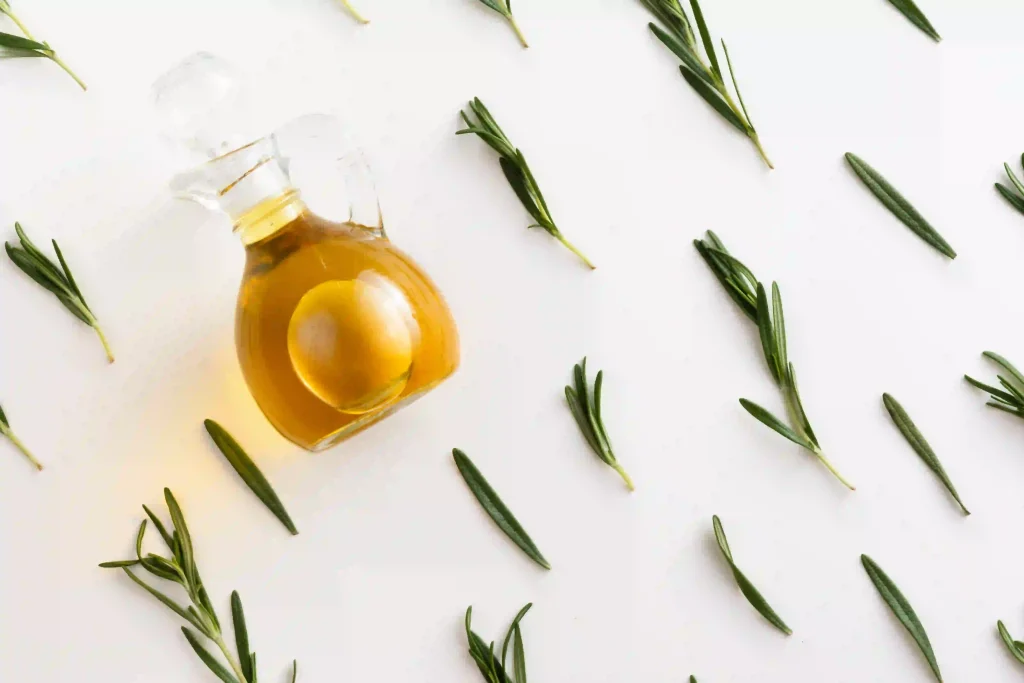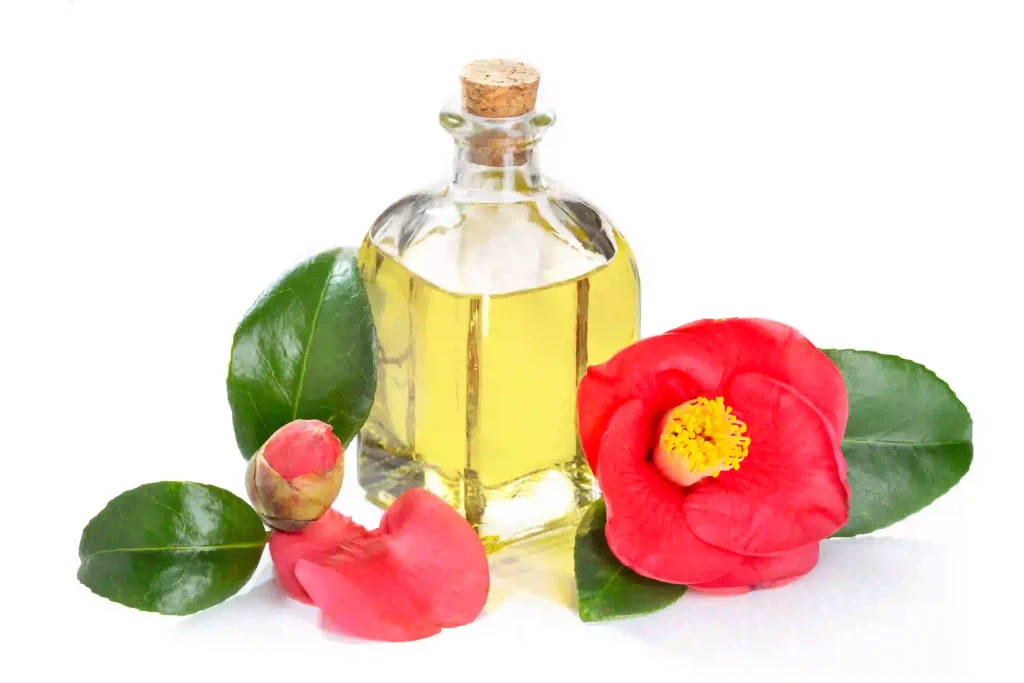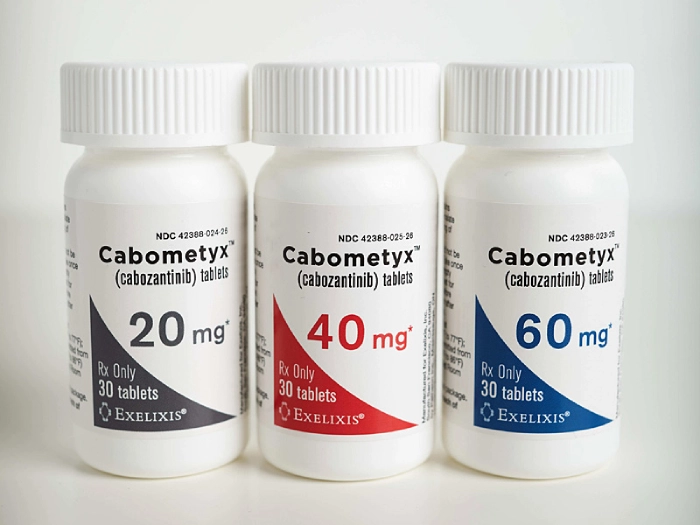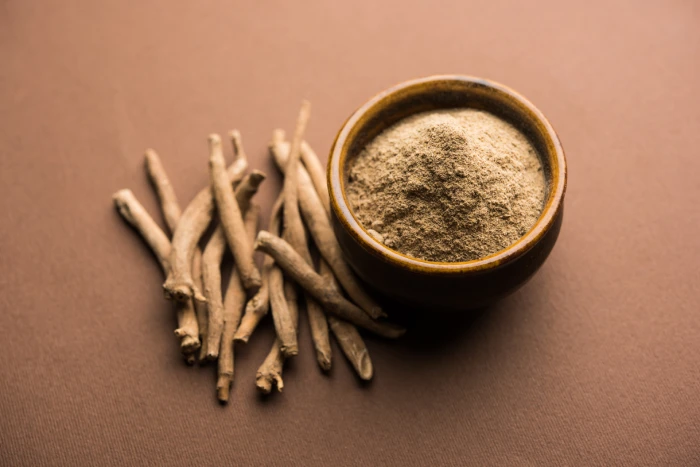As a health product enthusiast and longtime columnist in the wellness industry, few have impressed me as much as Camellia oil. Today, I’m excited to share my comprehensive guide about this remarkable oil that’s been cherished in East Asian cultures for centuries. Let’s dive deep into why Camellia oil might just be the game-changing addition to your health and beauty routine you’ve been searching for.
What is Camellia Oil and Where Does It Come From?
Camellia oil, also known as tea seed oil, is derived from the seeds of the Camellia sinensis plant, the same plant that gives us green tea. This golden-hued oil has been a staple in Asian skincare and culinary traditions for over 2,000 years, particularly in regions like Japan, China, and Korea. What makes this oil truly special is its remarkable composition – it’s rich in oleic acid (Omega-9), vitamins A, B, D, and E, and various antioxidants that contribute to its impressive health benefits. The extraction process typically involves cold-pressing the seeds to preserve the oil’s nutritional integrity, resulting in a product that’s both pure and potent.

The Remarkable Health Benefits of Camellia Oil
One of the most fascinating aspects of Camellia oil is its versatility in promoting overall health and wellness. Let’s explore its numerous benefits in detail. First and foremost, Camellia oil is a powerhouse when it comes to skin health. Its molecular structure is similar to our skin’s natural oils, allowing it to penetrate deeply without feeling greasy. This characteristic makes it an excellent moisturizer that can help reduce the appearance of fine lines and wrinkles while promoting skin elasticity. The high concentration of antioxidants helps protect against environmental damage and premature aging, while its anti-inflammatory properties can soothe irritated skin conditions.
Camellia Oil for Hair Health: Is It a DHT Blocker?
One of the most common questions I receive is “is camellia oil a DHT blocker?” The answer is particularly interesting. While research is ongoing, preliminary studies suggest that Camellia oil may indeed have properties that help regulate DHT (dihydrotestosterone) levels, which is known to contribute to hair loss. The oil’s rich antioxidant content and ability to promote scalp health make it a promising natural solution for those concerned about hair thinning. When applied to the scalp, Camellia oil can help strengthen hair follicles, reduce inflammation, and promote healthy hair growth. Its lightweight nature ensures it won’t weigh down your hair while providing essential nutrients to both the scalp and hair strands.
Culinary Applications and Internal Health Benefits
Beyond its external applications, Camellia oil has impressive culinary uses and internal health benefits. With a high smoke point of 485°F (252°C), it’s excellent for cooking and has a delicate, slightly sweet flavor that enhances rather than overpowers dishes. The oil is particularly rich in heart-healthy monounsaturated fats, similar to olive oil, making it an excellent choice for those looking to maintain cardiovascular health. Regular consumption of Camellia oil has been linked to improved cholesterol levels, enhanced immune function, and better digestive health. Its anti-inflammatory properties may also help reduce the risk of chronic diseases and support overall wellness.
Skin Benefits and Anti-Aging Properties
The anti-aging properties of Camellia oil are truly remarkable. Its high concentration of antioxidants, particularly vitamin E, helps combat free radical damage that leads to premature aging. The oil’s ability to boost collagen production helps maintain skin elasticity and firmness, while its moisturizing properties keep skin hydrated and supple. Users often report improved skin texture, reduced appearance of scars and blemishes, and a more radiant complexion after incorporating Camellia oil into their skincare routine. The oil’s lightweight texture makes it suitable for all skin types, including sensitive and acne-prone skin.
How to Choose and Use Camellia Oil
When selecting Camellia oil, quality is paramount. Look for cold-pressed, unrefined options that maintain the oil’s natural beneficial properties. The oil should be stored in dark glass bottles to protect it from light degradation. For skincare, apply a few drops to slightly damp skin morning and evening. For hair care, you can use it as a pre-shampoo treatment or lightweight styling oil. When using it for cooking, treat it as you would a high-quality olive oil – use it for sautéing, in dressings, or as a finishing oil to enhance flavors.

Sustainability and Environmental Impact
An aspect of Camellia oil that particularly appeals to environmentally conscious consumers is its sustainability profile. Camellia plants are typically grown without heavy pesticide use, and the oil extraction process can be done with minimal environmental impact when proper methods are employed. Many traditional Camellia oil producers maintain sustainable farming practices that have been passed down through generations, ensuring both quality and environmental responsibility.
Frequently Asked Questions About Camellia Oil
Throughout my years of writing about health products, I’ve encountered numerous questions about Camellia oil. Here are some of the most common ones:
Q:Can Camellia oil cause allergic reactions?
A: While Camellia oil is generally well-tolerated, it’s always wise to perform a patch test before full application. Those with specific nut allergies should consult their healthcare provider before use.
Q:How long does Camellia oil last?
A:When properly stored in a cool, dark place, Camellia oil typically maintains its quality for 12-18 months after opening.
Q:Is Camellia oil suitable for all hair types?
A:Yes, its lightweight nature makes it suitable for all hair types, from fine to coarse, though the amount used should be adjusted accordingly.
The Science Behind Camellia Oil’s Effectiveness
The effectiveness of Camellia oil isn’t just based on traditional use – modern scientific research continues to validate its benefits. Studies have shown that the oil’s unique molecular structure and nutrient composition contribute to its exceptional absorption rate and therapeutic properties. The presence of polyphenols and other bioactive compounds explains its antioxidant and anti-inflammatory effects, while its fatty acid profile supports its role in maintaining skin barrier function and promoting cellular health.
Cost Considerations and Value Proposition
While premium Camellia oil might seem expensive compared to some other oils, its concentration and versatility make it a cost-effective investment. A little goes a long way, and when you consider its multiple uses – from skincare to cooking to hair care – the value becomes apparent. The key is to invest in high-quality, pure Camellia oil from reputable sources to ensure you’re getting the full benefits of this remarkable natural product.
Future Prospects and Research Directions
The growing interest in natural health solutions has sparked increased research into Camellia oil’s properties and potential applications. Emerging studies are exploring its possible benefits for conditions ranging from inflammatory skin disorders to hair loss prevention. The question “is camellia oil a DHT blocker” continues to drive research in the field of natural hair loss solutions, with promising preliminary results suggesting its potential in this area.
Personal Experiences and Community Feedback
In my years of writing about health products, I’ve collected countless testimonials from readers who’ve incorporated Camellia oil into their daily routines. Many report significant improvements in their skin condition, hair health, and overall wellness. While individual results may vary, the consistency of positive feedback across diverse user groups speaks to the oil’s versatility and effectiveness.

Final Thoughts
While Camellia oil offers numerous potential benefits, it’s important to note that individual results may vary, and this article is not intended as medical advice. Always consult with healthcare professionals before starting any new health regimen, particularly if you have specific health conditions or concerns. The information provided here is based on current research and traditional knowledge, but continued studies may reveal new insights about this remarkable natural product.
the key to success with any natural health product lies in consistent, appropriate use and realistic expectations. Whether you’re considering Camellia oil for its potential DHT-blocking properties, its skin benefits, or its culinary applications, approach it as part of a holistic health strategy rather than a miracle solution.
*Disclaimer: This article is for informational purposes only and should not replace professional medical advice.Always consult with a healthcare provider before starting any new supplement regimen.*



